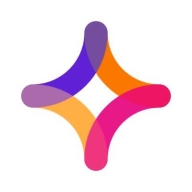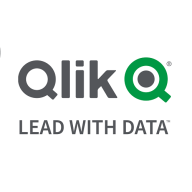

Qlik Replicate and Jitterbit Harmony compete in the data integration sector. Jitterbit Harmony has the upper hand due to its extensive features catering to high customization and scalability, whereas Qlik Replicate offers competitive pricing and reliable support.
Features: Qlik Replicate provides real-time data replication, supports a wide range of databases, and simplifies data transfer processes. Jitterbit Harmony offers powerful API creation, strong application integration, and exceptional data transformation capabilities.
Room for Improvement: Qlik Replicate could enhance its AI capabilities and expand its connectors to newer platforms. Jitterbit Harmony might benefit from improving its cost structure and simplifying its deployment processes for less tech-savvy users.
Ease of Deployment and Customer Service: Qlik Replicate offers a straightforward deployment experience with reliable customer support, focusing on minimizing downtime. Jitterbit Harmony provides a highly adaptable deployment model ensuring seamless integration across systems, plus prompt customer service.
Pricing and ROI: Qlik Replicate is cost-effective with a promising return on investment through efficient operations. Jitterbit Harmony may be more expensive but ensures high ROI via its advanced capabilities and enhanced integration benefits.
I conducted a cost comparison with the AWS service provider, and this option is much cheaper than the Kinesis service offered by AWS.
Customers have seen ROI with Qlik Replicate because they get their data for analysis faster, enabling quicker decision-making compared to traditional data sourcing methods.
Even priority tickets, which should be resolved in minutes, can take days.
Support response times could be improved as there are sometimes delays in receiving replies to support cases.
The system could be scaled to include more sources and functions.
It is a core-based licensing, which, especially in the banking industry, results in the system capacity being utilized up to a maximum of 60%.
Currently, there are limited transformations available in Qlik Replicate which could be expanded.
Licensing is calculated based on the machine's total capacity rather than actual usage.
For Qlik Replicate, the setup cost includes the requirement of a server, which represents the hardware cost that must be covered.
The most valuable feature of Qlik Replicate is their change data capture feature.
Data retrieved from the system can be pushed to multiple places, supporting various divisions such as marketing, loans, and others.
| Product | Market Share (%) |
|---|---|
| Qlik Replicate | 2.3% |
| Jitterbit Harmony | 0.6% |
| Other | 97.1% |


| Company Size | Count |
|---|---|
| Small Business | 8 |
| Midsize Enterprise | 3 |
| Large Enterprise | 1 |
| Company Size | Count |
|---|---|
| Small Business | 9 |
| Large Enterprise | 10 |
Jitterbit Harmony offers an advanced integration platform that simplifies data transformation, helps users quickly connect apps, and automates workflows, streamlining complex business processes efficiently.
Designed to meet the high demands of modern businesses, Jitterbit Harmony enables seamless integration across cloud and on-premise environments. By leveraging its powerful tools and user-friendly design, users can accelerate innovation, reduce operational costs, and enhance productivity. It bridges the gap between traditional and emerging technologies, ensuring organizations can adapt quickly to market changes and remain competitive.
What are the key features of Jitterbit Harmony?Jitterbit Harmony finds its application across numerous industries, from enhancing data integration in the healthcare sector to optimizing supply chain logistics in manufacturing. It supports financial institutions by improving transaction processing and facilitates real-time data connectivity in retail environments, making it a versatile choice for diverse industries looking to innovate rapidly.
Qlik Replicate is a data replication solution for replicating data from one source database to another for business intelligence software. It offers data manipulation and transformations, replication without impacting source databases, and ease of use without needing ETL. The solution is stable and user-friendly, with detailed logging and support.
Qlik Replicate has improved the organization by allowing each team to replicate their data into a single-source data location. The most important feature of Qlik Replicate is its ability to replicate and update records without needing a programmer.
We monitor all Data Integration reviews to prevent fraudulent reviews and keep review quality high. We do not post reviews by company employees or direct competitors. We validate each review for authenticity via cross-reference with LinkedIn, and personal follow-up with the reviewer when necessary.